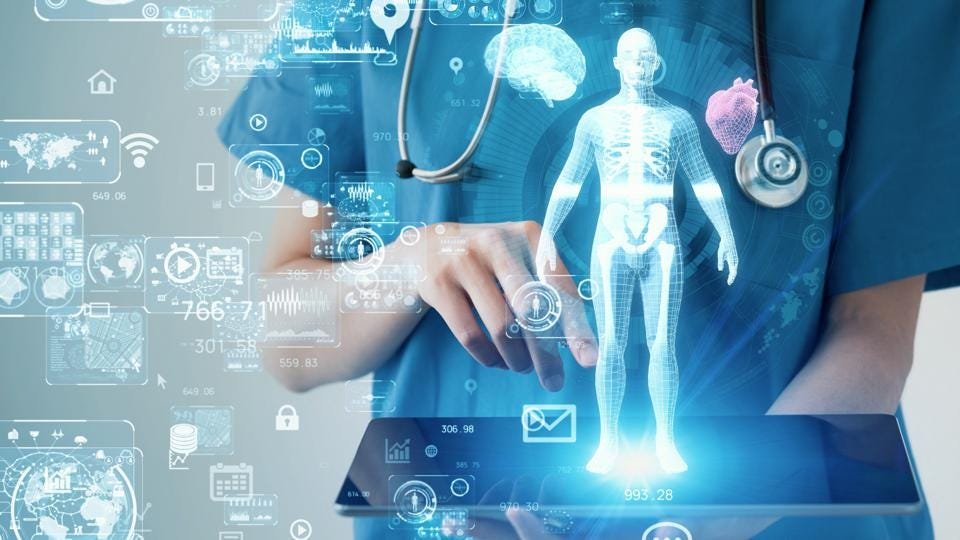Artificial intelligence (AI) technology has revolutionized healthcare since its introduction. The introduction of artificial intelligence into healthcare is not only changing the way doctors work, but also opening the door to new ways to diagnose, treat, care for patients and do other things.
Overview of Artificial Intelligence in Healthcare
When artificial intelligence was introduced into healthcare, it revolutionized the way medical treatments worked. Artificial intelligence has become an important tool because it can process large amounts of data, identify trends and make predictions based on the data. Artificial intelligence has been used in healthcare for a long time, but recent improvements have taken it to new heights, changing the way patients are cared for and medical research is conducted.
AI applications in diagnosis and treatment
One of the most important implications of artificial intelligence for healthcare is that it can be used to diagnose and treat diseases. Diagnostic tools that use artificial intelligence and machine learning techniques to view medical images and data with high accuracy. These tools make it possible to detect diseases early, allowing doctors to treat them quickly and accurately. Adding artificial intelligence to precision medicine could also make treatments more effective based on each person’s unique genetic makeup.
The use of artificial intelligence-powered robots has also brought about dramatic changes in the field of surgery and treatment. Robot-assisted treatment is more precise and less harmful to the body, resulting in shorter healing times and better patient outcomes.
Improve patient care and experience
Artificial intelligence cannot only be used for detection and treatment; it can also improve patient care and experience. Artificial intelligence programs look at patient data to tailor treatment plans, enabling personalized patient care. AI-powered bots also increase customer engagement by providing assistance 24 hours a day, seven days a week by answering questions, booking appointments and providing advice.
Artificial intelligence has helped spread the idea of remote tracking and healthcare. Patients can now access medical care from the comfort of their own home, making it easier for doctors to monitor the situation and treat the problem quickly.
The impact of artificial intelligence on medical personnel
The use of artificial intelligence in healthcare will also impact people in healthcare. It allows healthcare workers to do their jobs better, but it also means they have to continually learn and improve. The jobs of doctors and nurses are changing, which means AI tools and human knowledge must work together in harmony.
Thoughts and questions about ethics
With the ability of artificial intelligence to transform healthcare, many social problems and difficulties will arise. Concerns about patient data privacy and potential shortcomings in AI systems require strict regulations and ethical standards. To ensure that people can trust the healthcare system, it is important to ensure that the choices AI makes are fair and clear.
Future trends and opportunities
Looking ahead, the future of AI-powered healthcare looks bright. Artificial intelligence technology continues to improve and can be combined with other new technologies such as the Internet of Medical Things (IoMT) and blockchain to make enormous things possible. Some interesting new options on the horizon include predictive analytics, better disease control, and personalized medicine.
In summary
When artificial intelligence and healthcare work together, it opens up a whole new world of unprecedented innovation and progress. While there are still problems to be solved, AI has the potential to revolutionize healthcare, delivering better outcomes for patients, streamlining processes and ushering in new ways of thinking about medicine.




